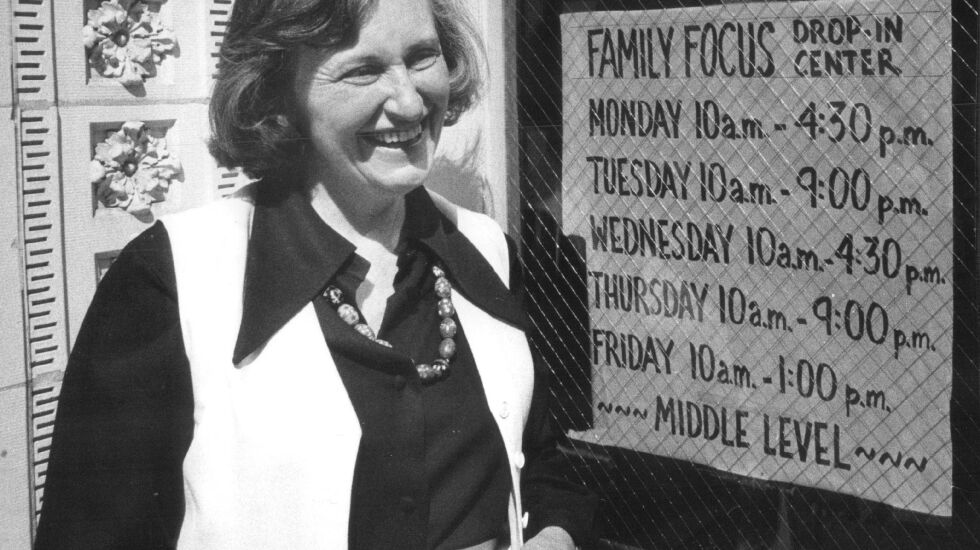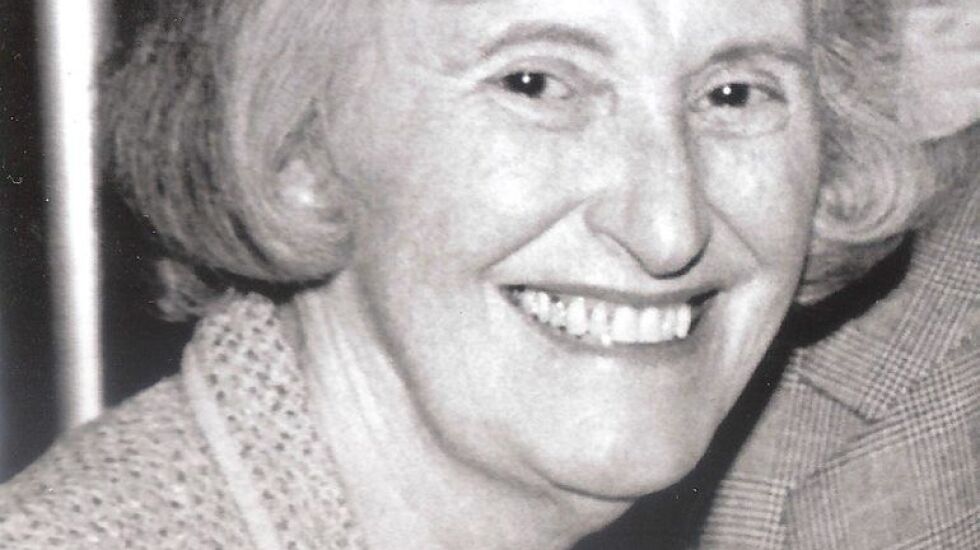
Bernice Weissbourd was a champion of early childhood development programs who understood that parents need to be educated as much as children to help them both thrive.
She popularized the idea that the first three years of a child’s life are critical to their development and later success in life and that the relationship between child and parent is paramount.
“She was a rock star of family support services,” her son Bob Weissbourd said.
Mrs. Weissbourd died at age 99 on Oct. 12 at her home in Evanston, family said.
Mrs. Weissbourd became convinced that early childhood development was important while working with kids in the Henry Horner housing project in the 1970s.
“We found that the children who were most self-confident, open and engaged with others had parents who knew the detailed aspects of their children’s needs, likes, and dislikes,” she wrote in a biography.
“It seemed clear that so much of the die was cast early for these children; one could almost predict which children would lead full lives,” she wrote.
With that insight, Mrs. Weissbourd spent a year researching the principles behind what would become her Family Focus nonprofit, a center for toddlers that focused as much on teaching the parents as the kids.

The idea behind the centers was “revolutionary at the time,” said Judy Langford Carter, who worked with Mrs. Weissbourd.
The centers helped develop the relationship between child and parent to help them both grow. “It’s not just the baby who’s developing, it’s the parents who are developing,” Langford Carter said.
In 1976, Mrs. Weissbourd opened the first Family Focus center for toddlers in Evanston. There are now 11 centers in the Chicago area. The model underlying them has been copied in hundreds of other centers.
“Family Focus was such a springboard for so many thing families needed,” said Delores Holmes, who directed the first Family Focus center. “Family Focus was there to help them connect with other parents who had similar needs,” she said, adding that the center went beyond just providing day care.
Mrs. Weissbourd’s breadth of knowledge and political acumen helped her popularize the idea, an idea stirring in intellectual circles at the time, Langford Carter said.
She hired Langford Carter, whose father in-law was President Jimmy Carter, to help lobby state officials to fund the programs.
“She had the combination of capacities: She was a warm and generous person and a great strategist,” her son Rick Weissbourd said.
“She was a gatherer. She was energized by people. She had a boundless capacity to talk, engage and think. It was remarkable,” he said.
Bernice Targ was born in 1923 on Chicago’s South Side. She studied classical piano at the Juilliard School in New York and, in 1946, married Bernard Weissbourd, a scientist who worked on the Manhattan Project and also was a lawyer and real estate developer. They had four children and moved to Evanston in 1959.
She began her career as a music teacher, and after her children were grown, switched her focus to child care and early education.
Mrs. Weissbourd began as a Head Start teacher and family center supervisor. Then she held positions on child care advisory boards and served two terms as advisory council chair for the Illinois Department of Children and Family Services.
Mrs. Weissbourd’s commitment to activism underpinned her transition from teaching music to child advocacy.
“Bernice was very progressive,” Bob Weissbourd said. “She grew up with a heavy commitment to change the world into a better place” and understood that helping young kids thrive is a fundamental issue.
Mrs. Weissbourd’s focus on child development was obvious to anyone who spoke to her.
“She brought every conversation back to the issue of children and families,” Evanston Mayor Daniel Biss said.
“She had an intense understanding of how support of families, particularly families with small children, weigh on a society that wants to thrive,” Biss said.
Mrs. Weissbourd was charming and funny, but she could also be very direct, Biss said. “Our conversations did not go in circles,” he said.
Mrs. Weissbourd was not a theoretician whose thoughts did not match her actions.
“We’d have kids at the dining room table, and she’d effortlessly engage with them. ... She had a way of making people at ease,” Biss said.
Mrs. Weissbourd’s dining room table symbolized her commitment to work and also her humanity, Langford Carter said.
“It either had giant piles of books and journals when I came over to work with her. ... Or it was the scene of so many events I attended,” she said.
A wedding dinner, gatherings with community organizations, political events. She hosted people with and without power.
“She wanted people to know it was a top-to-bottom enterprise,” Langford Carter said.
For decades, Mrs. Weissbourd advocated for federally funded child care and parental care. In a 1975 article in the Sun-Times, Mrs. Weissbourd lamented that the majority of working mothers had no accessible day care for their children. She called the federal budget’s 1% allocation for day care and child welfare “a pitiful figure.”
Her activism continued throughout her whole life, and she never really retired, her sons said.
She never bragged about her success.
“Bernice was too busy thinking about the next thing she would do, the next thing she would attack,” Langford Carter said.
Bernard Weissbourd died in 2000. She is survived by her children, Burt, Ruth Grant, Bob and Rick; 11 grandchildren and seven great-grandchildren.
Services on Thursday will be private.







